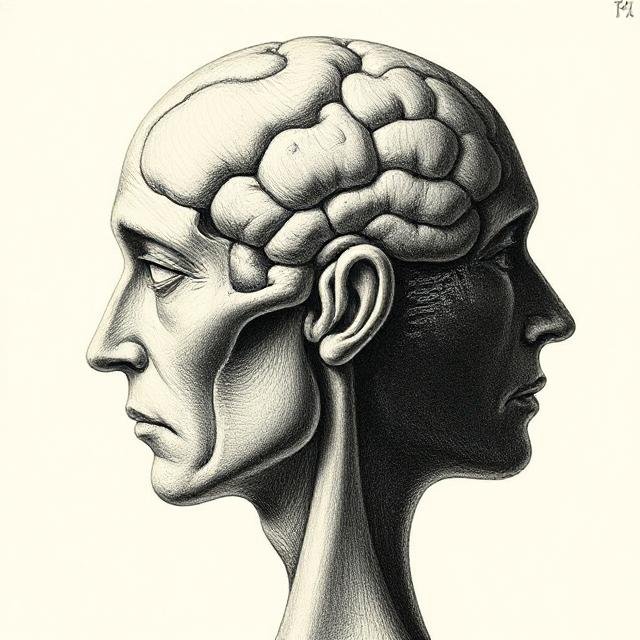Introduction
Adjustment disorder is a mental health condition that often arises when an individual is faced with significant life changes or stressors. These changes, whether positive or negative, may overwhelm a person’s ability to adapt, leading to emotional distress, anxiety, and a range of physical symptoms. Unlike other mental health disorders, adjustment disorder is specifically triggered by identifiable life events, such as moving to a new city, the loss of a loved one, or transitioning to a new job. The condition can affect anyone, regardless of age, gender, or background, and while the symptoms may be intense, they are often temporary.
What is Adjustment Disorder?
Adjustment disorder is classified as a mood disorder in the Diagnostic and Statistical Manual of Mental Disorders (DSM-5). It refers to a condition where an individual is unable to effectively cope with or adapt to a significant life change or stressor. This disorder can manifest in a variety of ways, including emotional, behavioral, and physical symptoms, and can have a substantial impact on one’s ability to function normally in daily life.
The key distinction between adjustment disorder and other mental health conditions, such as generalized anxiety disorder or major depressive disorder, is that adjustment disorder is directly linked to a specific life event or stressor. The symptoms typically arise within three months of the triggering event and can last for a few months or longer, depending on the individual’s ability to cope and seek treatment.
Symptoms of Adjustment Disorder
The symptoms of adjustment disorder can vary widely from person to person, but they often include:
- Emotional symptoms: Anxiety, sadness, irritability, feelings of hopelessness, or a sense of being overwhelmed.
- Behavioral symptoms: Withdrawal from social activities, changes in work or school performance, difficulty concentrating, or an increase in risky behaviors (such as substance abuse).
- Physical symptoms: Trouble sleeping, fatigue, headaches, or gastrointestinal issues.
- Cognitive symptoms: Difficulty concentrating, intrusive thoughts, or memory problems.
These symptoms can affect an individual’s relationships, work performance, and overall quality of life. It is important to note that while many people may experience feelings of sadness or anxiety in response to life changes, individuals with adjustment disorder experience these feelings to a degree that significantly interferes with their ability to function.
Causes and Risk Factors
Adjustment disorder is typically triggered by a significant life event or change, but the way individuals respond to these events can vary. Some common triggers include:
- Relationship issues: Divorce, breakups, or conflicts in family dynamics.
- Job-related changes: Losing a job, moving to a new city for work, or facing major workplace stress.
- Health-related issues: A major illness or injury, or the diagnosis of a chronic condition.
- Loss: The death of a loved one, a pet, or a close friend.
- Financial stress: Experiencing significant financial hardship or instability.
Certain individuals may be at a higher risk for developing adjustment disorder, including those with a history of mental health conditions, those who are experiencing a combination of stressors, or those who lack strong support systems.
Diagnosis of Adjustment Disorder
Diagnosing adjustment disorder requires a thorough assessment by a qualified mental health professional. This assessment typically involves a detailed interview in which the individual discusses their symptoms, the life event or stressor that may have triggered the symptoms, and any past mental health history.
The DSM-5 criteria for adjustment disorder include:
- Symptoms that arise within three months of a significant life event.
- The symptoms are out of proportion to the stressor.
- The symptoms cause significant distress or impairment in daily functioning.
- The symptoms do not meet the criteria for another mental disorder.
It is essential to rule out other conditions, such as depression, anxiety disorders, or post-traumatic stress disorder (PTSD), before arriving at a diagnosis of adjustment disorder.
Treatment Options for Adjustment Disorder
The treatment for adjustment disorder typically includes a combination of therapy and, in some cases, medication. The goal is to help the individual develop healthier coping mechanisms and to reduce the distress caused by the triggering event. Some common treatment approaches include:
- Cognitive Behavioral Therapy (CBT): This type of therapy helps individuals recognize and change negative thought patterns and behaviors that contribute to emotional distress.
- Supportive Therapy: This therapy provides emotional support and guidance during difficult times, helping individuals process their feelings.
- Medication: Antidepressants or anti-anxiety medications may be prescribed in some cases to help manage symptoms, particularly if they interfere with daily life.
In addition to professional treatment, self-care strategies such as regular exercise, healthy eating, and mindfulness practices can also play a crucial role in managing the symptoms of adjustment disorder.
Coping Strategies for Adjustment Disorder
While professional treatment is often necessary, individuals with adjustment disorder can also benefit from personal coping strategies to help manage their symptoms. Some effective techniques include:
- Building a support network: Talking to friends, family, or a support group can provide comfort and understanding.
- Engaging in relaxation techniques: Practices like meditation, yoga, or deep breathing exercises can reduce stress and promote emotional stability.
- Setting realistic goals: Breaking tasks into manageable steps can help prevent feelings of overwhelm.
- Maintaining a healthy lifestyle: Regular physical activity, adequate sleep, and a balanced diet can all contribute to improved mental health.
Impact on Daily Life and Relationships
Adjustment disorder can have a profound impact on an individual’s relationships and ability to perform daily tasks. The symptoms, including emotional distress and behavioral changes, may strain relationships with family, friends, and colleagues. For example, someone experiencing adjustment disorder may withdraw from social activities, become irritable, or have difficulty maintaining work or school performance.
With appropriate treatment and support, however, individuals can often recover and resume their normal functioning.
Recent Research and Developments
Recent studies have focused on improving the understanding of adjustment disorder, particularly with regard to the effectiveness of various treatment options. Researchers have found that early intervention and therapy, especially CBT, are highly effective in helping individuals recover from the disorder.
In addition, newer research into the biological and psychological aspects of adjustment disorder is helping to refine diagnostic criteria and treatment strategies. For instance, studies examining the role of genetics and environmental factors may provide insights into why some individuals are more susceptible to developing adjustment disorder than others.













